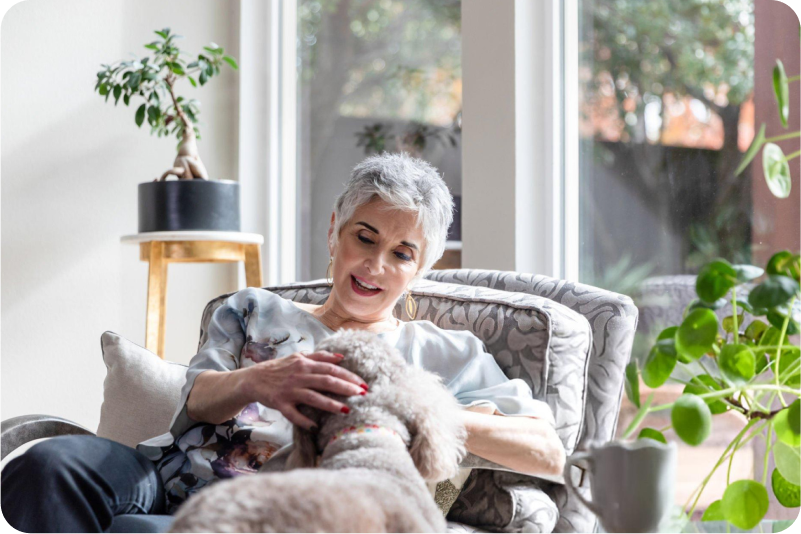Retirement is meant to be a time of rest, reflection, and reward. But for widows, this chapter can feel drastically different.
The emotional impact of losing a spouse is heavy enough — but the financial aftermath often brings a new layer of stress, confusion, and vulnerability. From reduced income to complex legal decisions, widowhood changes nearly every part of retirement planning.
Here’s a look at the most common risks widows face in retirement — and the steps you can take to navigate them with strength and clarity.
Risk #1: Loss of Income and Benefits
One of the biggest changes after losing a spouse is income. Without your partner’s earnings, pension, or Social Security, your monthly cash flow may drop significantly.
Did you know?
The U.S. Census Bureau reports that nearly 1 in 5 women over age 65 live alone and have income below the poverty level. Widowhood is a major contributing factor.
What to do:
Review all survivor benefits: You may qualify for your spouse’s Social Security survivor benefits. You can begin as early as age 60 (or 50 if disabled).
Check life insurance and pension rules: Some pensions continue partial payments to spouses — others stop completely. Confirm the terms.
Re-budget with your new income: Adjust your lifestyle or expenses to fit your new normal before it becomes a source of debt.
Risk #2: Outliving Your Savings
Women live longer than men, on average by about 5–6 years.
That’s great news for life — but a serious concern for finances.
According to the Social Security Administration, a 65-year-old woman today has a 50% chance of living to age 90.
What to do:
Create a long-term withdrawal plan: Aim for a safe withdrawal rate (e.g. 3.5–4%) to make your money last.
Delay claiming Social Security if possible: Each year you delay after full retirement age increases your benefit by 8%, up to age 70.
Maintain diversified investments: Don’t shift everything to low-risk options — inflation can erode your purchasing power over 20+ years.
Risk #3: Higher Medical and Long-Term Care Costs
Without a spouse to care for you, the cost of health support increases. Whether it's home assistance or full-time care, these expenses add up fast.
Fidelity estimates that a 65-year-old single woman will need about $165,000 (after tax) to cover healthcare expenses in retirement — excluding long-term care.
What to do:
Ensure your Medicare coverage is solid: Add a Medigap policy or Medicare Advantage plan to cover gaps.
Consider long-term care insurance: If affordable, it can protect your savings from being drained by a few years of care.
Use an HSA if you have one: Contributions are tax-deductible, and withdrawals for medical costs are tax-free.
Risk #4: Legal and Estate Gaps
Many widows discover they weren’t fully informed about the family’s legal and financial situation. Some are left with outdated wills, unclear property rights, or no power of attorney arrangements.
What to do:
Update your estate documents: Will, healthcare directive, power of attorney — they all need to reflect your current reality.
Check your beneficiaries: Retirement accounts and life insurance policies pass directly to listed beneficiaries, not through your will.
Meet with a financial planner and estate attorney: They’ll help you spot blind spots and protect your assets.
Risk #5: Isolation and Emotional Vulnerability
Beyond money, widowhood often brings loneliness — and with it, vulnerability to scams or poor decisions.
The FBI reports that elder fraud cost Americans over $3 billion annually, and widows are among the most targeted.
What to do:
Build a circle of trusted advisors: Don’t make big money moves alone. Get a second opinion from someone with no agenda.
Avoid rushing into financial decisions: Take your time. Grief clouds judgment.
Stay socially connected: Join support groups, volunteer, or pick up a new hobby — isolation can quietly drain your health and happiness.
Final Thoughts
Widowhood changes retirement. But it doesn’t have to ruin it.
You still have choices. You still have time. And you still have the power to build a retirement that honors your spouse’s memory — while fully embracing your next chapter.
- Take control of your finances
- Protect your health and future care
- Lean into community and trusted support
You don’t have to do everything at once. But each step you take brings more clarity, more peace, and more confidence.
You’re not just surviving widowhood — you’re rebuilding with purpose.





.png)
.png)
.png)
.png)
